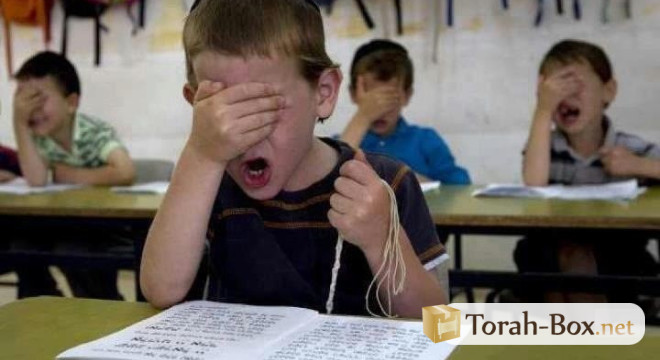
Educating Children
Education-Action Leading to Love
We all know that when a man performs a mitzvah zealously, he is driven by an inner fire burning in his heart. A less well-known rule sustains that the opposite is also true: a man can fire his heart's enthusiasm by acting zealously. Even when lacking motivation to act, we can arouse enthusiasm by driving ourselves to behave with gusto.
Sefer HaChinuch [16] expresses this rule as follows: "A man's thoughts and feelings are always influenced by his actions. Even a terrible rasha (wicked man) if forced to do good will eventually soften his heart. And conversely, when a truly good individual is forced to act cruelly, his actions will take a toll on his heart”. Accordingly, the Sefer Hahinuch teaches that the Torah always commands the observance of Mitzvot to help man integrate certain foundations, rather than reminisce the latter in his thoughts because the heart is much more influenced by acts than by meditation.
Thus, for example, when one makes the effort to support a poor person, one's heart becomes a little more merciful and develops empathy for others. The heart is thus more impacted by giving than by listening to a lecture on the importance of tzedakah. The same goes for a man who comes home in the evening in a state of irritation and annoyance yet does not want to project his bad mood on his wife or children. He can transform his heart's polarity by striving to please them. He may perform some household chores to please his wife or prepare a tasty snack for his children.
This rule's formula is not very widespread. Nevertheless, many seem to abide by it unconsciously. Hence the reason many parents force their children to behave according to rules that go against the child's desires. Presumably, they think that accustoming the child to obey these rules will eventually awaken his drive to apply them, because 'a man's heart is influenced by his actions'. Yet so many 'trained' youngsters rebel from this oppressive education as soon as they can. Why? Is the rule of Sefer HaChinuch not true?
It is obvious that the rule needs a continuous reality check if we expect it to exert a positive influence on the heart. The challenge is to determine what aspect of the action has influenced the heart? Indeed, every action, even the most charitable one, can be motivated by ulterior motives. For example, when a beggar requests a coin, I may give it to him because I understand that he is destitute and that I have an obligation to love my neighbor. In which case, I have opened my heart to another. But if I throw a coin in his tzedakah box because he exasperates me, and I hope to get rid of him, I have reinforced my disdain for parasites who rely on others for a living. And if I give it to him to boost my generosity to others, my gesture has done nothing more than enhance my feeling of pride and contempt. And if my gestures are motivated by ulterior motives, the ensuing feelings of pride, contempt and disdain will have been proportionally reinforced in my heart.
Ditto for the prisoner. If he only perceives the 'deprivation' aspect of his isolation, his captivity will increase his desire to live life to the fullest. Once he is free, he will imperatively compensate his time in captivity by satisfying his most ardent desires. He might also internalize the importance of not getting caught in the act again. But it's unlikely he will ever internalize the notion of living a moral and normative existence.
Torah-Box.net Account
To access the entire Torah-Box.net website, sign up for free in less than a minute.
Weekly Parsha
 Candle Lighting - New York
Candle Lighting - New York
Friday February 27th, 2026 at 17:27 *Shabbat ends at 18:27 *
change my location
* Times given as an indication, check the times of your community











